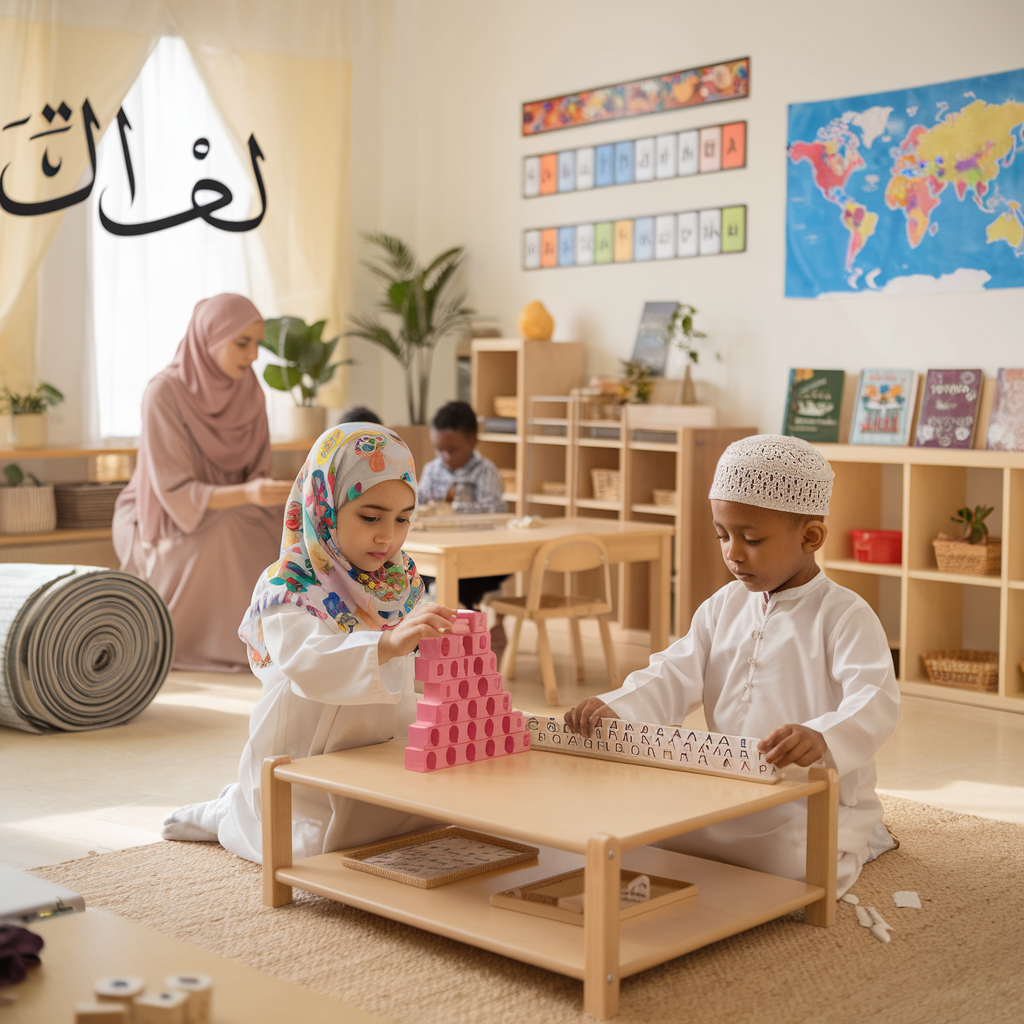
Balancing Faith and Education: How Montessori Values Align with Islamic Principles
Nurturing Faith and Intellect: The Beautiful Harmony of Montessori and Islamic Values in Early Childhood Education
As Muslim parents, we often find ourselves seeking educational approaches that not only foster academic excellence but also nurture our children’s spiritual growth. The good news? Montessori education offers a beautiful framework that aligns seamlessly with Islamic principles, creating a holistic environment for our little ones to thrive.
The Shared Foundation of Respect
At the heart of both Montessori philosophy and Islamic teachings lies a profound respect for the individual. The Montessori method emphasizes respecting the child as a unique being, capable of self-directed learning. This mirrors the Islamic concept of fitrah – the innate, pure nature of every child.
In a Montessori classroom, children are encouraged to make choices and learn at their own pace. This fosters self-discipline and responsibility, qualities highly valued in Islam. By allowing children to explore their environment freely, we nurture their God-given curiosity and potential.
Building a Sense of Community
Both Montessori education and Islam place great importance on community and social responsibility. In Montessori settings, mixed-age classrooms create a mini-society where older children help younger ones, fostering a sense of caring and cooperation. This beautifully reflects the Islamic principle of brotherhood and sisterhood within the ummah.
Montessori’s focus on practical life skills – from preparing snacks to caring for plants – instills a sense of responsibility towards one’s environment and community. This aligns perfectly with the Islamic teaching of being stewards of the Earth and caring for Allah’s creation.
Cultivating Peace and Inner Discipline
The prepared Montessori environment, with its emphasis on order and beauty, creates a sense of inner peace in children. This calm atmosphere resonates with the Islamic concept of sakina (tranquility) and helps children develop self-regulation skills.
Montessori’s approach to discipline, focusing on natural consequences rather than punishment, echoes the Islamic principle of gentle guidance. By treating children with respect and helping them understand the impact of their actions, we nurture their innate sense of right and wrong.
Embracing Diversity and Universal Values
Montessori education celebrates cultural diversity, introducing children to different traditions and ways of life. This global perspective aligns with Islam’s emphasis on respect for all of Allah’s creation and the diversity of human cultures.
Many Montessori materials and activities can be easily adapted to incorporate Islamic teachings. From exploring Islamic art and architecture to learning about the contributions of Muslim scientists and scholars, there are countless ways to weave faith into the Montessori curriculum.
Conclusion: A Harmonious Approach to Raising Our Children
By choosing Montessori education for our young Muslim children, we’re not compromising our faith – we’re embracing an approach that beautifully complements Islamic values. This harmonious blend nurtures both the spiritual and intellectual growth of our little ones, preparing them to be confident, compassionate, and curious Muslims ready to positively impact the world.
As we guide our children on this journey of faith and learning, let’s embrace the synergy between Montessori principles and Islamic teachings. In doing so, we’re laying a strong foundation for a lifetime of holistic growth, insha’Allah.
Zainub Kara
